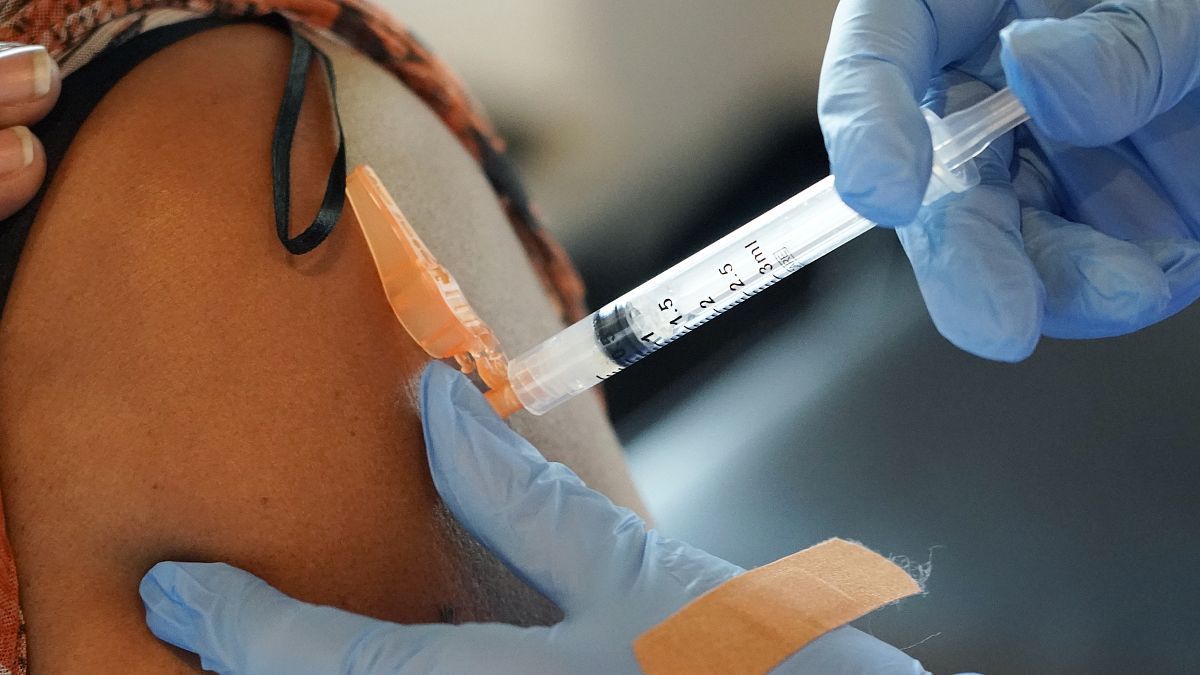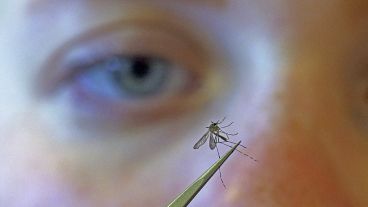A new study looked at the long-term prognosis of French people who were hospitalised between 2020 and 2022 for heart inflammation.
People who suffered from myocarditis after a COVID-19 vaccination had fewer cardiovascular complications a year and a half later than those who were hospitalised for the heart condition due to other causes, a new study has found.
Myocarditis is heart inflammation that can be mild or serious and typically occurs after a viral infection. It can cause chest pain, rapid heartbeats, or shortness of breath.
It was previously known that there is a link between the mRNA COVID-19 vaccines and an increased risk of myocarditis, particularly for young men, and that a COVID-19 infection can also lead to heart inflammation.
However, scientists in a group formed by France’s national health system and medicines regulator say their new study is the first to look at the long-term prognosis for people 18 months after being hospitalised for the condition.
Published this week in the Journal of the American Medical Association, the study looked at all cases of myocarditis in France that resulted in hospitalisation for people aged 12 to 49 between December 2020 and June 2022.
Out of the more than 4,600 cases, the researchers found that around 550 patients had post-vaccine myocarditis, nearly 300 had post-COVID-19 myocarditis, and more than 3,700 had conventional myocarditis, meaning due to other causes.
They found that those who developed myocarditis post-vaccination were less often readmitted to hospital for other cardiovascular events with 5.7 per cent having complications at 18 months compared to 13.2 per cent having complications after conventional myocarditis.
This was different from those who developed myocarditis due to a COVID-19 infection, who did not have a significant difference from those who had the condition due to other causes.
"Myocarditis post-vaccination [is similar to conventional] myocarditis but with a more favourable prognosis," said Mahmoud Zureik, an epidemiologist and director of Epi-Phare, the group of French scientists that carried out the study.
"Yet these patients still require management and treatment for several months after the episode," he told Euronews Health.
Patients with post-vaccine heart inflammation were confirmed to be younger than those with myocarditis due to COVID-19 or for other reasons. They were also more frequently men, the researchers said, in line with what was already known about the risk for post-vaccination myocarditis.
There are two possible explanations for the results of their study, Zureik said.
"It’s possible the vaccine leads to less severe myocarditis or [it’s possible] that we have a tendency to hospitalise cases that are less severe because we [learnt] that the vaccine could lead to myocarditis," he said.
Benefits of vaccination outweigh any risk, regulators say
Reports of myocarditis as a possible rare side effect of COVID-19 vaccination first emerged in 2021.
The risk of this or pericarditis, which is inflammation of the heart lining, has been determined to be "very rare" affecting fewer than one in 10,000 people for the Pfizer and Moderna mRNA vaccines.
The UK’s Medicines and Healthcare products Regulatory Agency (MHRA) has said that the "benefits of vaccination still outweigh any risk in most individuals".
An article published by experts from the European Medicines Agency (EMA) this year added that the available evidence showed that mRNA vaccination had an increased risk of myocarditis but at a "much lower level than the risk associated with COVID-19 infection".
This reiterates that there is a "clear positive benefit/risk ratio for COVID-19 mRNA vaccines," they said.
Gianfranco Parati, an honourary professor of cardiovascular medicine at the University of Milano-Bicocca, who was not involved in the study, said many patients had been worried about the long-term consequences of post-vaccination heart inflammation.
This large study's findings of fewer cardiovascular complications post-vaccination are "reassuring," he said.
When you compare the number of people vaccinated in France to the number of cases of myocarditis, Zureik added, the rate of myocarditis is low especially as young people can still develop severe COVID-19 infections.
Yet it is still a "serious pathology," he said, and one that is rarely seen as an adverse effect of a medication.
"MRNA vaccines will be made for other indications than COVID-19, such as flu or cancer, so these results must be taken into account when there are new uses of the mRNA vaccines, looking particularly at the profile of the patients," he said.
This article has been updated to include comments from an independent expert.















